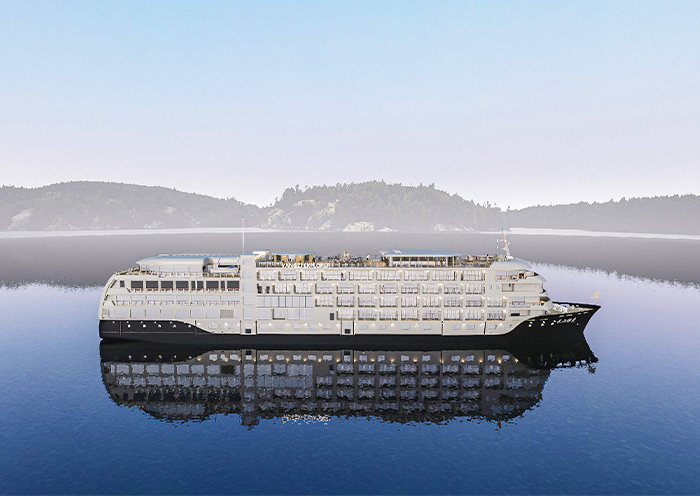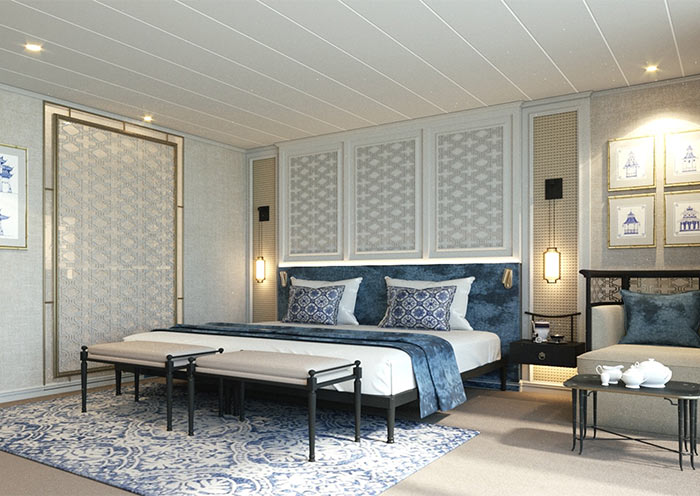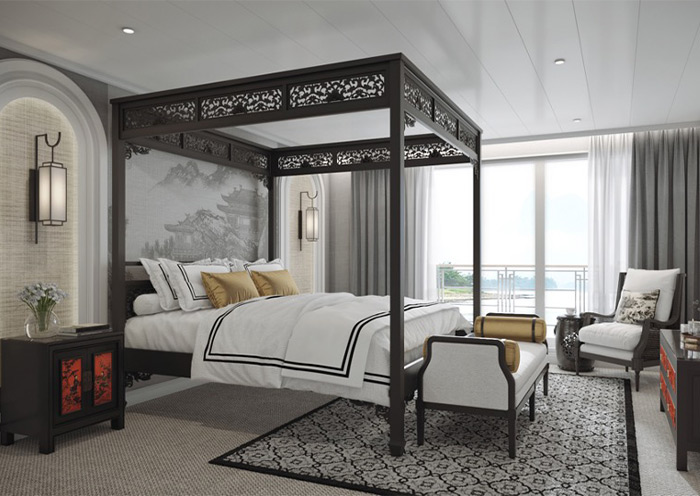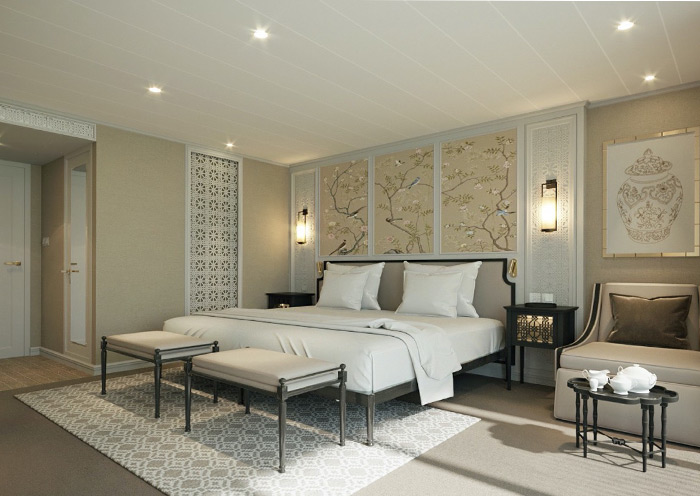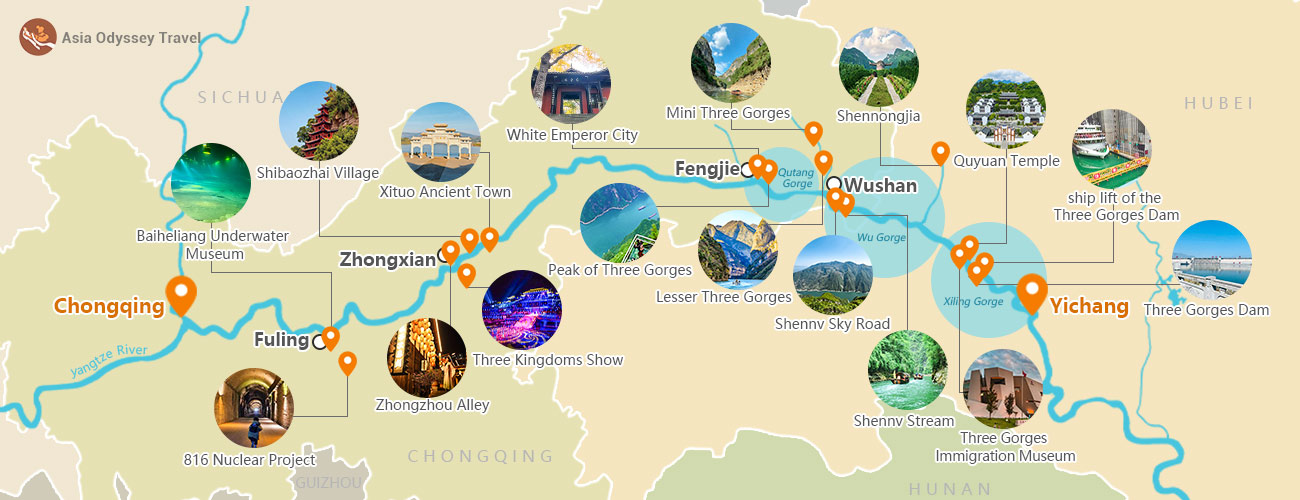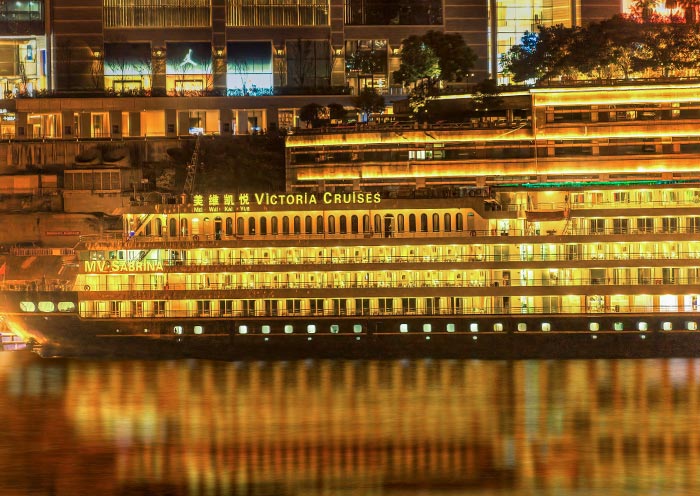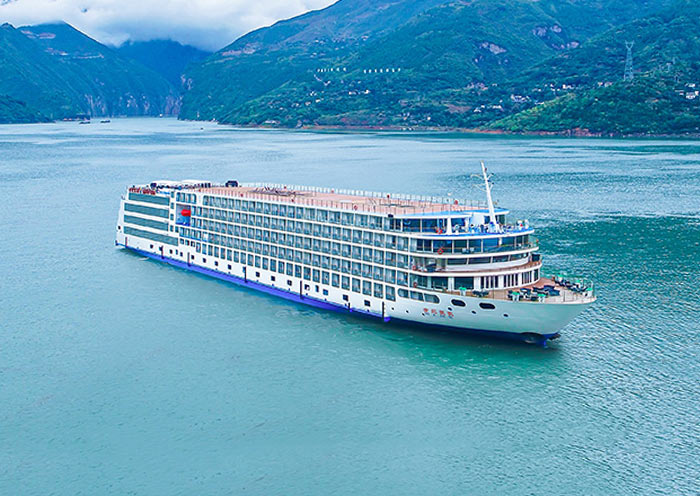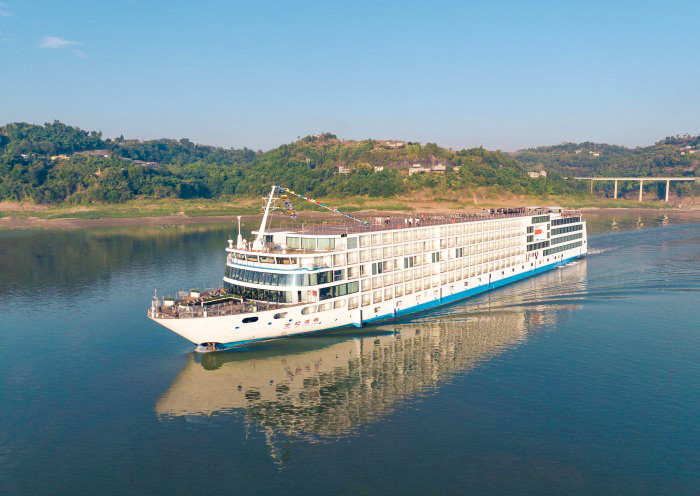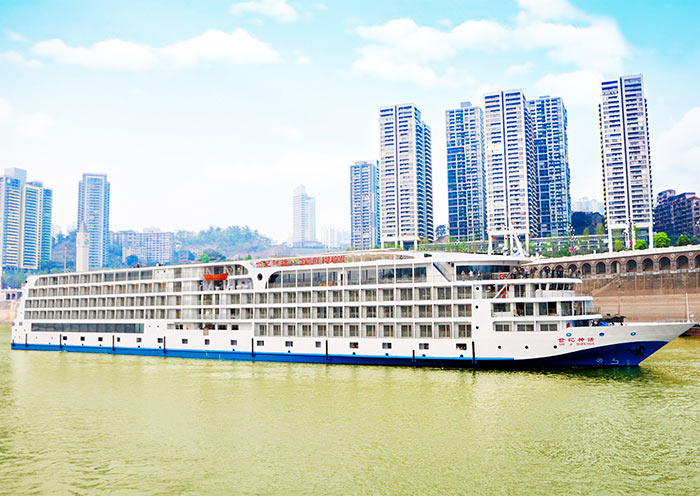Yes, a Yangtze River Cruise is very safe. Cruise operators prioritize passenger safety and comply with strict maritime safety standards. Most luxury Yangtze River cruise ships have medical facilities onboard, including a doctor or medical staff who can handle minor health issues. Here are the key factors ensuring a safe journey:
Calm Waters: The Yangtze River has calm waters, making it ideal for cruising. There are no rough seas, so the risk of accidents or seasickness is minimal. Additionally, the Cruise Ships we chose mainly run between Chongqing and Yichang (before Three Gorges Dam) which are part of the calmest water area of the Yangtze River.
Modern Ships: Most Yangtze River cruise ships are modern and built with advanced safety features, including fire detection systems, life rafts, and emergency evacuation procedures.
Trained Crew: Crew members are professionally trained in safety protocols and emergency response. Safety drills are conducted regularly.
Life Jackets & Emergency Equipment: Life jackets are available in all cabins and public areas. Emergency exits and evacuation plans are clearly marked throughout the ship.
Stable Conditions: The river’s calm and predictable flow ensures a smooth and stable journey, even during rainy seasons.
Onboard Clinics: Ships are equipped with basic medical clinics for first aid and minor medical needs.
Medical Staff: There is usually a doctor or trained nurse on board to assist with common ailments like motion sickness, minor injuries, or sudden health concerns.
Limitations: Medical facilities on ships are basic and not equipped for major emergencies or surgeries. Passengers with serious medical conditions should bring their medications and consult their doctor before traveling.
Emergency Support: In case of a severe medical emergency, the ship can arrange for evacuation to the nearest hospital, but this may take time depending on the ship’s location.
Bring Medications: Ensure travelers carry any prescribed medications or health supplies they need for the duration of the trip.
Inform the Cruise Staff: Notify the cruise in advance if any passenger has a specific medical condition or mobility issue.
Travel Insurance: Recommend comprehensive travel insurance that covers medical emergencies and evacuation.
Hydration & Rest: Encourage passengers to stay hydrated and take breaks during shore excursions, especially elderly travelers.
